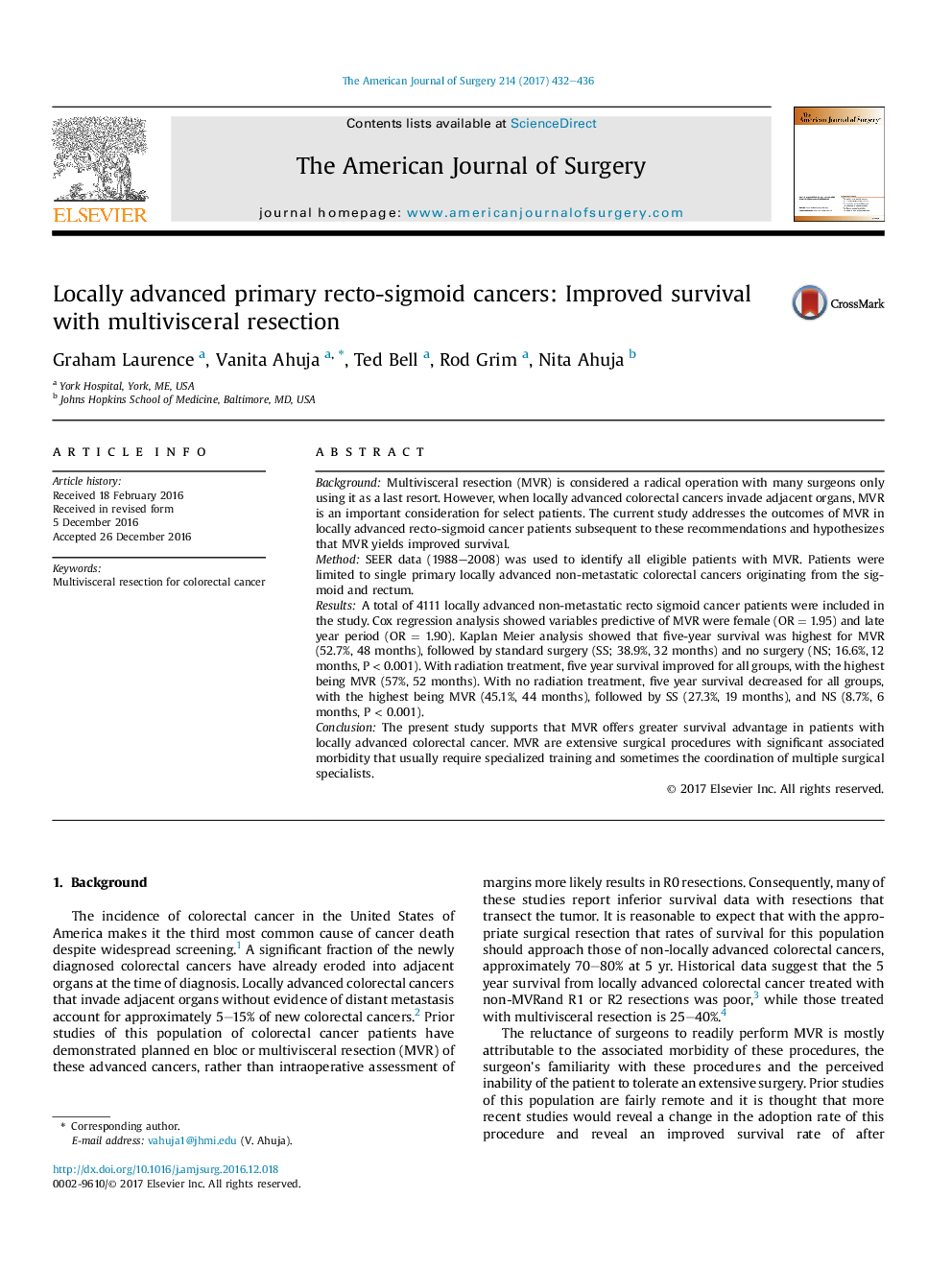| Article ID | Journal | Published Year | Pages | File Type |
|---|---|---|---|---|
| 5730973 | The American Journal of Surgery | 2017 | 5 Pages |
â¢The present study supports that MVR offers greater survival advantage in patients with locally advanced colorectal cancer.â¢MVR are extensive surgical procedures with significant associated morbidity.â¢MVR usually require specialized training and sometimes the coordination of multiple surgical specialists.â¢Five-year survival was highest for MVR, followed by standard surgery and no surgery.
BackgroundMultivisceral resection (MVR) is considered a radical operation with many surgeons only using it as a last resort. However, when locally advanced colorectal cancers invade adjacent organs, MVR is an important consideration for select patients. The current study addresses the outcomes of MVR in locally advanced recto-sigmoid cancer patients subsequent to these recommendations and hypothesizes that MVR yields improved survival.MethodSEER data (1988-2008) was used to identify all eligible patients with MVR. Patients were limited to single primary locally advanced non-metastatic colorectal cancers originating from the sigmoid and rectum.ResultsA total of 4111 locally advanced non-metastatic recto sigmoid cancer patients were included in the study. Cox regression analysis showed variables predictive of MVR were female (ORÂ =Â 1.95) and late year period (ORÂ =Â 1.90). Kaplan Meier analysis showed that five-year survival was highest for MVR (52.7%, 48 months), followed by standard surgery (SS; 38.9%, 32 months) and no surgery (NS; 16.6%, 12 months, PÂ <Â 0.001). With radiation treatment, five year survival improved for all groups, with the highest being MVR (57%, 52 months). With no radiation treatment, five year survival decreased for all groups, with the highest being MVR (45.1%, 44 months), followed by SS (27.3%, 19 months), and NS (8.7%, 6 months, PÂ <Â 0.001).ConclusionThe present study supports that MVR offers greater survival advantage in patients with locally advanced colorectal cancer. MVR are extensive surgical procedures with significant associated morbidity that usually require specialized training and sometimes the coordination of multiple surgical specialists.
